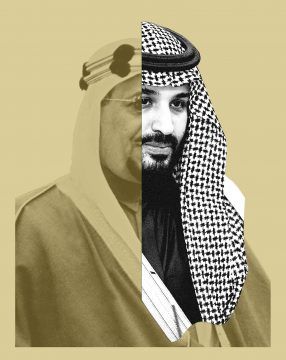Christopher Dickey in The New York Times:
 On the final page of “MBS,” his detailed and disturbing portrait of Saudi Arabia’s crown prince Mohammed bin Salman, Ben Hubbard admits that, given what he learned in the course of his reporting on the kingdom’s de facto ruler and the ways his ruthless minions have pursued their boss’s perceived enemies, he “did wonder, while walking home late at night or drifting off to sleep, whether they might come after me as well.” Perhaps that sounds melodramatic, but anyone who reads Hubbard’s clear and convincing narrative will find the concern all too plausible. And where could you turn if the prince did lash out? Certainly not to an American administration that believed M.B.S. ordered the 2018 murder and dismemberment of the Washington Post columnist Jamal Khashoggi but gave the prince a pass. “It could very well be that the crown prince had knowledge of this tragic event — maybe he did, maybe he didn’t!” said President Trump, who always equivocates about inconvenient facts. “The United States,” he went on, “intends to remain a steadfast partner of Saudi Arabia to ensure the interests of our country.” Not the least of those interests: more than a hundred billion dollars’ worth of arms deals.
On the final page of “MBS,” his detailed and disturbing portrait of Saudi Arabia’s crown prince Mohammed bin Salman, Ben Hubbard admits that, given what he learned in the course of his reporting on the kingdom’s de facto ruler and the ways his ruthless minions have pursued their boss’s perceived enemies, he “did wonder, while walking home late at night or drifting off to sleep, whether they might come after me as well.” Perhaps that sounds melodramatic, but anyone who reads Hubbard’s clear and convincing narrative will find the concern all too plausible. And where could you turn if the prince did lash out? Certainly not to an American administration that believed M.B.S. ordered the 2018 murder and dismemberment of the Washington Post columnist Jamal Khashoggi but gave the prince a pass. “It could very well be that the crown prince had knowledge of this tragic event — maybe he did, maybe he didn’t!” said President Trump, who always equivocates about inconvenient facts. “The United States,” he went on, “intends to remain a steadfast partner of Saudi Arabia to ensure the interests of our country.” Not the least of those interests: more than a hundred billion dollars’ worth of arms deals.
Hubbard, The New York Times’s Beirut bureau chief, puts the story of Mohammed bin Salman’s ascent in a context that extends well beyond the region. “M.B.S.’s rise rode the waves of global trends,” he writes. “As more of the world’s wealth was concentrated in fewer hands, populist authoritarians used nationalist rhetoric to rally their people while shutting down outlets for opposition.” In such a world, the prince fit right in. “M.B.S. saw no need for checks on his power and crushed all threats to it. … He would stop at nothing to make Saudi Arabia great again, on his terms.”
More here.
